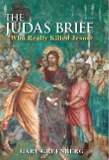One of the great scandals in the study of early Israelite history, to my mind, is the near absolute barrier between Egyptology and biblical scholarship. There are very few scholars with a strong knowledge of the relevant material in both disciplines and a basic bias against finding any significant cultural links between ancient Egypt and ancient Israel. Israel is sacred and Egypt is profane. The two shall not meet. I think of this as The Papyrus Curtain. Whenever I’ve gone to the annual conference of the American Research Center in Egypt, perhaps the largest and one of the most important annual scholarly Egyptological conferences, if there are enough papers on biblical-Egyptological topics to form a single session of three or four papers (often there are not enough papers for a special session) it is usually placed in the least desirable time slot available, usually the last morning session when most attendees are sleeping late and/or checking out. Matters are not much better at the SBL conference. It is usually the same handful of scholars who speak at both conferences.
Now this is not to say that there is a significant link between ancient Israel and ancient Egypt, although I think there definitely is, but merely to argue that the subject deserves to be studied with at least the same intensity that is devoted to Mesopotamian and Canaanite mythology and its (very meager) influence on early Israelite history. After all, the biblical account says that Israel’s formative period as a nation took place in Egypt; several members of Moses’ tribe have Egyptian names; and Joseph was married to the daughter of the chief priest of Heliopolis (biblical On), which is where the monotheistic beliefs of Pharaoh Akhenaten originated. And, in orthodox Jewish circles, the Exodus is dated to 1311. (In my own work, I date it to 1315.) If 1311 (or 1315) is correct, then Moses must have been a contemporary of Pharaoh Akhenaten. Consequently, any scholarly theories about the Exodus date are careful to place the date sufficiently after or sufficiently before the time of Akhenaten so that he and Moses can’t meet. Finally, Egypt had an enormous cultural influence in Canaan throughout most of the biblical period. Occasionally we find first millennium Israelite seals bearing Egyptian iconography. The scholars tend to explain them away as Phoenician influences adapted from Egyptian influences. But if Egypt can so influence more distant Byblos and Tyre, shouldn't we expect it to also influence Canaanite peoples in the cultural transmission.
Now, it may be that after careful study a strong Egyptian influence might not stand up to scrutiny, but if we are going to have a serious discussion of the historicity of biblical claims, certainly there should be extensive study into whether there are any significant traces of Egyptian ideas in the biblical accounts of Israel’s early history. Do any important Egyptian stories and myths correspond to biblical stories? One of the very few connections that biblical scholars will acknowledge is some similarity between the story of Joseph and the Pharaoh’s wife and the Egyptian story known as The Tale of the Two Brothers.
In all of Genesis 1-11, the prehistory period down to Abraham, there is hardly any significant presence of Mesopotamian story lines in the Genesis accounts. And, as soon as Abraham appears, he almost immediately arrives in Egypt and has a relationship with the Pharaoh. Only a brief anachronistic insert places Abraham in Mesopotamia before he goes to Egypt.
The most obvious and well-trumpeted Babylonian influence is in the story of Noah’s flood. Clearly there are some similarities between the Noah story and the Babylonian stories, but there are also a great many significant differences between the two sets of stories. This raises the question of whether the similarities are original to the story or are they secondary additions added on to the portions that don’t match. Beyond that, there is not a great deal of correspondence between the Genesis prehistory and the Mesopotamian. It used to be thought that the biblical and Babylonian Creation stories had a link based solely on the basis of one word, Tehom (the biblical deep), which was thought to possibly correspond to the Babylonian Tiamat, a primeval monster that was slaughtered and cut into the heavens and the earth. That view is largely abandoned now in the academic community.
In the course of my blogging here, I plan to raise a large number of issues concerning Egyptian-Israelite connections. I hope you’ll find some of them interesting.
Subscribe to:
Post Comments (Atom)



2 comments:
Do you not mention the apparaent "papyrus wall" at such conference's, if so what is the normal reaction. Secondly interms of the origins of the flood and Noah's Ark some researchers have argued an egyptian rather than Babylonian influence citing the Nu Angkh boat from the reign of Khufu and the annual flooding of the nile, as a point of origin
Kevin,
I'll be addressing the many points of contact between Noah's flood and Egyptian tradtions in later posts.
Post a Comment